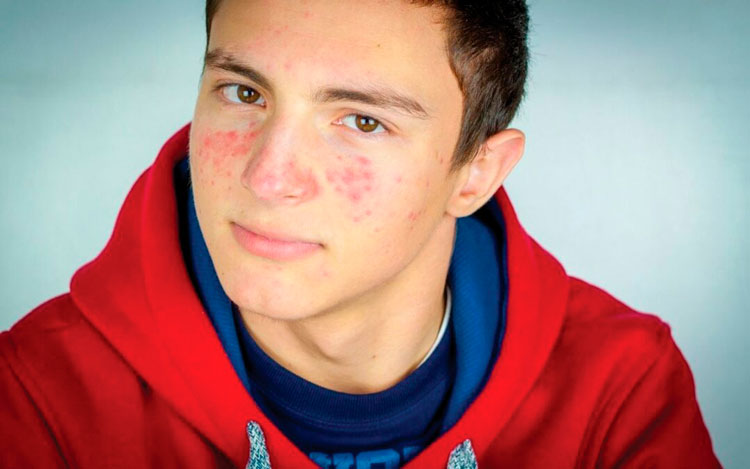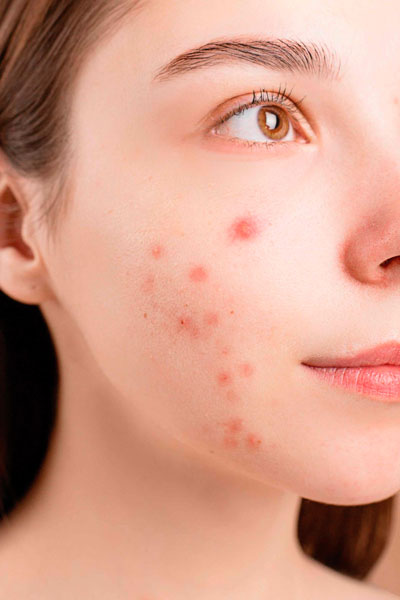Our faces provide a first impression. And for as many as 25 percent of adolescents and adults, the emotional stress that parallels inflammation breakouts interfere with our daily interactions.
Dr. Zaina Rashid of La Peau Dermatology provides tips and information for caring for a dilemma that’s agonized teens and adults for a very long time — acne. While the causes and methods of care haven’t changed drastically over time, understanding how acne starts and how to properly care for infected skin can help significantly lessen future flare-ups and scarring.
Breakouts are most found on the face and neck, back, shoulders, and chest. Persistent skin care and treatment from a dermatologist are the most effective methods of prevention.
WHAT CAUSES ACNE?
Acne is largely a hormonal condition that is driven by androgen hormones. These hormones typically are the most active during the teenage and young adult years. Sensitivity to these hormones, combined with surface bacteria on the skin and fatty acids within the oil glands, can result in acne.
Some causes and factors that make acne worse:
- Fluctuating hormone levels around the time of a female’s period.
- Picking or squeezing at the sores.
- Clothing and headgear such as hats and sports helmets.
- High humidity and air pollution.
- Use of oily or greasy personal care products, such as heavy lotions, creams, waxes, or hair pomades.
- Working in areas where you routinely come in contact with grease, such as restaurants with greasy food surfaces and frying oils.
- Stress, causing an increase in the hormone cortisol.
- Some medications.
- Genetics.
A thorough consultation and examination from a dermatologist can be the best starting point for clear skin. Patients can be taught proper face washing methods and, if qualified, patients could be started on short-term antibiotics to eliminate internal bacteria.
HOW SEVERE CAN ACNE GET?
The severity of acne is measured in grades. Grade 1 (mild) is mostly whiteheads and blackheads, with a few papules and pustules. Grade 2 (moderate, or pustular acne) are multiple papules and pustules, mostly on your face. Grade 3 (moderately severe, or nodulocystic acne) are numerous papules and pustules, along with occasionally inflamed nodules. Your back and chest may also be affected. Lastly, grade 4 (severe nodulocystic acne) includes numerous large, painful, and inflamed pustules and nodules.
HOMECARE HELP
“Don’t wash your face with bar soap,” says Dr. Rashid. “Not all body washes, hand soaps, and bar soaps are meant for the face. Proper facial cleansing begins with a proper face washing technique and should include a product containing benzoyl peroxide or salicylic acid to help kill acne-causing bacteria,” she added.
EAT A BALANCED DIET
A balanced diet provides nutrients your body needs to function correctly. This means most of your calories should come from fresh fruits and vegetables, whole grains and legumes, nuts, and lean proteins.
SKIN CARE PRODUCTS
Use water-based makeup or products labeled noncomedogenic, to lessen the possibility of clogged pores. Always remove makeup before bed. Wash your face after exercising.
REDUCE STRESS
Be mindful. Through positive self-talk, meditation, and self-acceptance you will put yourself on a new path to better health — something your mind, body, and skin will clearly thank you for.
Also, relax, take a break, and listen to some music. Talk it out with a friend.
Eat better and laugh it off. Drink tea and avoid caffeine. And get plenty of sleep.
La Peau Dermatology is located at 5424 E. Southern Ave., Suite 103, in Mesa. You can contact the office at (480) 401-5966 or email LaPeauDermatology@gmail.com.



